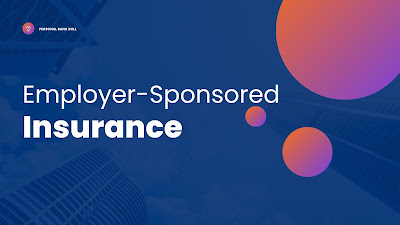Employer-Sponsored Insurance in the USA: What You Need to Know
What is Employer-Sponsored Insurance?
How Does ESI Work?
ESI works by allowing employers to pool their employees together to negotiate lower rates with insurance companies. Employers are able to negotiate lower rates because they are able to offer insurance to a large group of people. This allows the insurance company to spread out the risk and costs of providing coverage. In turn, the employer can offer their employees more affordable coverage.
What are the Benefits of ESI?
There are many benefits to enrolling in an ESI plan. One of the biggest benefits is that it can be more affordable than purchasing an individual plan. Since the employer pays a portion of the premium, the employee's portion of the premium is often lower. Additionally, ESI plans often have lower out-of-pocket costs, such as deductibles and copays.
Another benefit of ESI is that it can offer more comprehensive coverage. ESI plans often cover more healthcare expenses than individual plans. This can include coverage for preventive care, such as physicals and vaccinations, and coverage for mental health services.
What are the Drawbacks of ESI?
While there are many benefits to enrolling in an ESI plan, there are also some drawbacks. One of the biggest drawbacks is that you are limited to the insurance options offered by your employer. This means that if your employer does not offer a plan that meets your needs, you will have to purchase an individual plan.
Another drawback of ESI is that it can be more expensive than purchasing an individual plan. This is because the employer is paying a portion of the premium, and this cost is often passed on to the employee in the form of higher premiums. Additionally, ESI plans often have higher out-of-pocket costs, such as deductibles and copays, than individual plans.
Conclusion
In conclusion, Employer-Sponsored Insurance (ESI) is a common form of health insurance coverage offered by employers to their employees in the USA. It has many benefits such as being more affordable, having lower out-of-pocket costs and more comprehensive coverage, but also some drawbacks such as being limited to the insurance options offered by your employer and having higher out-of-pocket costs. It is important to consider all factors before enrolling in an ESI plan.

Post a Comment